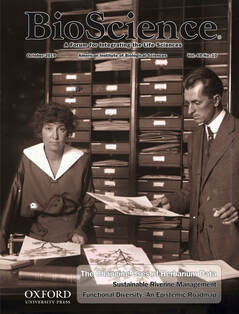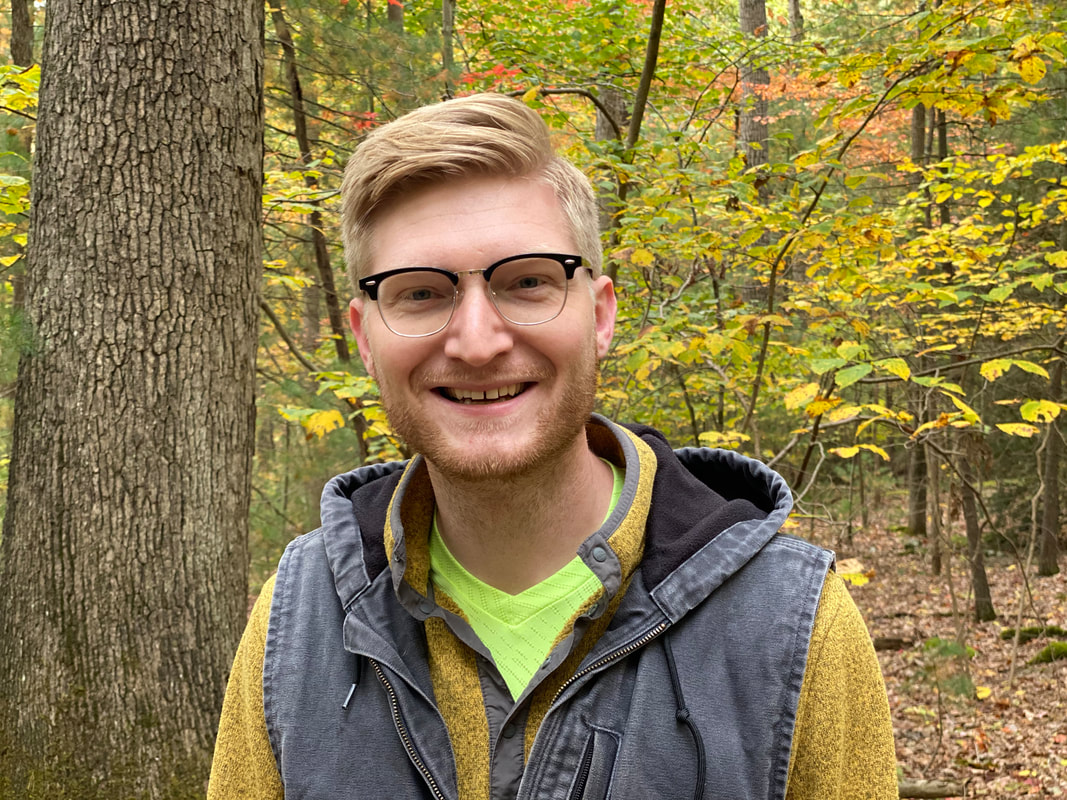|
|
Mason HeberlingAssistant Curator of Botany
Carnegie Museum of Natural History Pittsburgh, PA 15213 USA [email protected] Blog: collectedonthisday.com Twitter: @jmheberling Plant physiological ecology, Invasion biology, Phenology, Temperate deciduous forests, Global change.
Any and all things herbaria. Adjunct Assistant Professor
Dept. of Biological Sciences, University of Pittsburgh CMNH Section of Botany's Strategic Plan 2020-22 here.
CMNH Section of Botany website here. Search the CM Herbarium online here. Some Lab News:
*Welcome Dr. Molly Ng to CMNH Botany who joined us as the Rea Postdoctoral Fellow! (started Aug 2021) Molly is using CM herbarium specimens, paleobotany collection, and field collections at Powdermill Nature Reserve to study trait evolution and diversity in ferns. Her project is exciting and innovative in many ways, one of which being integrating herbarium, paleobotanical, and field-collected data.
*Welcome Dr. Ben Lee to CMNH Botany as an NSF Postdoctoral Fellow in Biology! (started Fall 2021) Ben will be using herbarium specimens to look at changes in mycorrhizal communities across time and space. Hosted at museum and co-sponsored by Drs. Sara Kuebbing (University of Pittsburgh) and David Burke (Holden Forests & Gardens). *New paper in PNAS on the research impacts of combining open access museum and community science data (press release). *Heberling and Caitlin McDonough MacKenzie and co-authors win 2020 George Mercer Award by the Ecological Society of America (press release). *Phenology research with Sara Kuebbing (University of Pittsburgh) covered by The Allegheny Front radio program. Listen here. *We were awarded funding from the US National Science Foundation to expand our research on phenological mismatch between forest layers! News coverage here. *Recent review on a century of herbarium specimen use in BioScience (link) featured on the cover of October issue! Read the iDigBio Research Spotlight. *Press releases (here and here) on new research with collaborators showing different responses to climate change between overstory trees and understory wildflowers that depend upon high light in the spring. News coverage here, here, here, and here. *New paper looking at mycorrhizal communities from century old herbarium specimen roots (link) (museum blog). * New approach linking specimens to iNaturalist observations published in Applications in Plant Sciences (link) (museum blog). * Live from the herbarium as part of Scientists Live series to discuss our herbarium digitization project (link). * Check out our organized oral session at the 2018 ESA meeting entitled "New Uses for Old Collections: Herbarium Data in an Era of Ecological Change" (link). * Carnegie Museum herbarium was funded by the US National Science Foundation to join the Mid-Atlantic Megalopolis project! Featured on Pittsburgh's NPR station, WESA (link). |
Who I am |
I am a curator in the Section of Botany at the Carnegie Museum of Natural History. My research program seeks to understand the ecophysiological strategies of plants in the context of global change, especially plant invasions and climate change. I am fascinated by herbarium specimens and their roles in understanding change in the Anthropocene. As a museum-based scientist, I use herbarium specimens in my research, and as a curator, I facilitate innovative and longstanding use of natural history collections by other researchers.
I also hold adjunct appointments at the nearby University of Pittsburgh Department of Biological Sciences and the Hunt Institute for Botanical Documentation (Carnegie Mellon University). Previously, I was a postdoc funded through an NSF Postdoctoral Fellowship in Biology, where I leveraged decades of herbarium data to document and understand trait changes in invasive species through space and time. Before that, I was a postdoc in the lab of Susan Kalisz studying the effects of deer and plant invasions on the physiology and demography of forest understory species. I did my PhD on the ecophysiology of forest understory shrub invasions at Syracuse University, advised by Jason Fridley. |


 orcid.org/0000-0003-0756-5090
orcid.org/0000-0003-0756-5090